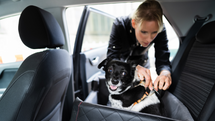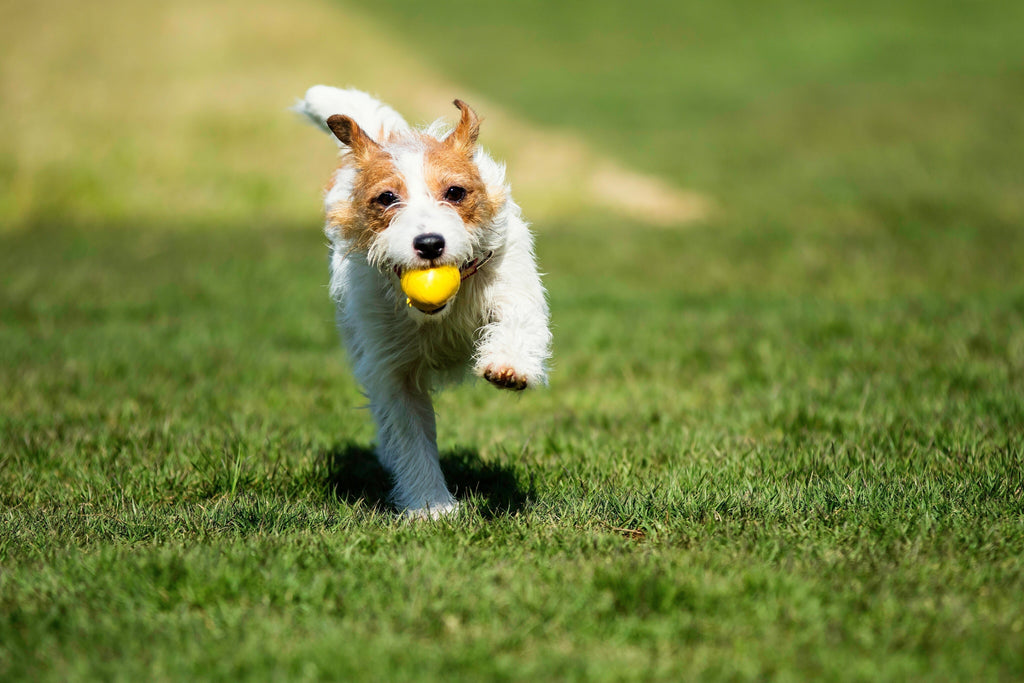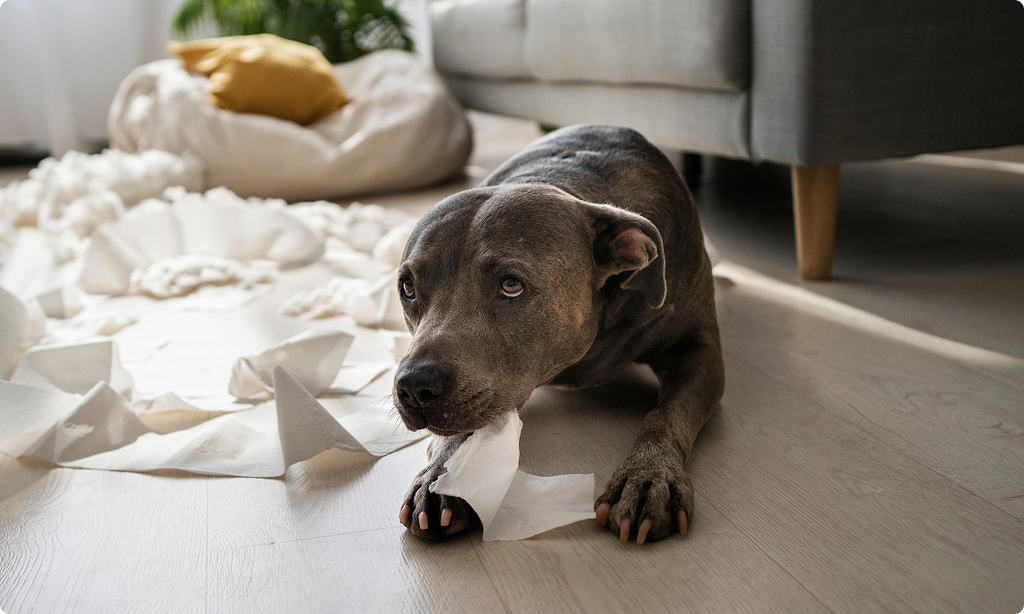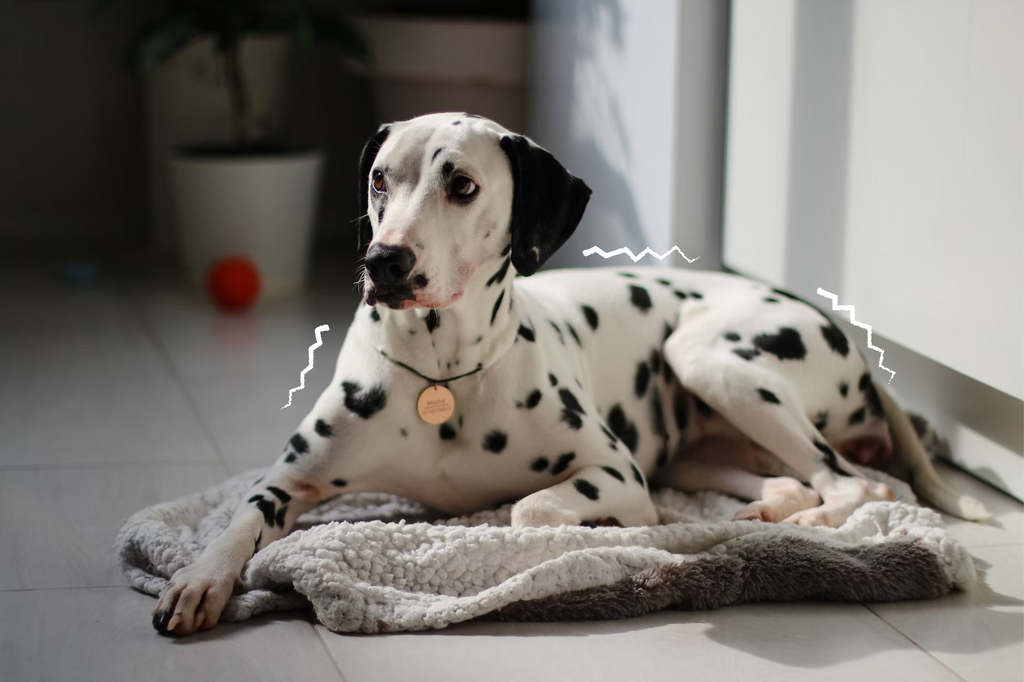Has Your Dog Stopped Eating Dry Dog Food?

It’s dinner time for your dog, so you fill their bowl with the dry dog food that they have been eating for months, and…they turn their nose up and refuse to eat. Did they decide they no longer liked that brand? Are they sick? Do they have a toothache? The reality is, when a dog stops eating their food it can be quite complicated.
Sometimes they just aren’t hungry. Sometimes they don’t feel well. What should you do to help your dog regain their appetite? This article will help you figure out why your dog stopped eating dry dog food and what you should do in response.
What to Do First if Your Dog Stopped Eating Dry Dog Food
Before you run to the supermarket and purchase new food, toppers, or begin adding treats to your dog’s bowl, it’s important to take a moment to assess the situation.
To so do, ask yourself:
- What has your dog been doing for the previous 2-3 days?
- Could they have eaten anything they shouldn't have?
- Did you just bring them into a new environment?
- Did your dog have surgery or any major lifestyle changes?
- Has your dog stopped eating dry food but eats treats?
The answer to these questions will give you quite a bit of insight. Additionally, there is no need to rush your doggo to the vet, but see if they perk up in the next day or two. However, watch for symptoms of diarrhea, lethargy and nausea. If you notice those symptoms, it might be time to see the vet.
To further test if your dog’s lack of appetite is a health issue or food issue, try a little good, old-fashioned home cooking. Add some chicken and rice, or beef stew to the bowl and see how your dog reacts.
So… your dog doesn’t like their dry food
Do dogs get bored of dry food? Of course, some do. However, determining if this is the issue is another challenge altogether. While others do not enjoy switching their foods. If you have just started a new brand of dog food or a new flavour, maybe your dog just doesn’t like it.
If you are giving them the same food, maybe their taste for their kibble has changed. Try to liven up the meal a little by adding a little meat stock or gravy to the bowl and mixing it in.
Variety can be the spice of life

You can also try adding a few of your dog’s favourite fruits and veggies [1]. Dehydrated fruit and veggies can work as well. Maybe dice up a small piece of meat and sprinkle those on top of the kibble to “prime the pump” and get your dog to dig in. Many dogs adore having raw dog food mixed in with their dry food.
You get tired of the same food day after day after day, and your dog might, too. Try a different flavour by the same manufacturer or maybe give a premium dog food brand a shot. But make sure that you check the ingredients so you are still giving your furry friend food that will help them to maintain their health.
Too many treats can spoil a good boy
One common problem that can lead to a dog not eating their dry food is over-feeding.
We all love our forever friends, and we enjoy giving them treats, but sometimes we give them too many treats. If that happens, dogs can lose their appetites and get bored with their regular dry food. If you think that is the case, either cut back on the treats, which are frequently high in calories or cut back the amount of food that you are giving them.
Has there been a change in location or schedule?
Dogs can be creatures of habit. Changes that disrupt the pattern of their life can affect their behavior. Try to feed them at a regular time each day. Don’t change access to their crate if you are keeping them in one. They are used to the same bed and toys, so if there have been changes there, that could be causing the loss of appetite.
Other Reasons Behind Dog Not Eating Dry Food

Why has my dog stopped eating dry dog food suddenly? Sometimes it’s not about the food. Many dog owners are surprised to learn that their dog’s appetite has nothing to do with what’s in their bowl. When this is the case, these are the most common reasons why :
1. Addition of another dog
Adding another dog to the family can disrupt your dog’s life. While some dogs adapt to other dogs well, some do not. So you have another forever friend to the household, don’t be surprised if it affects your current dog. More than likely, your dog will regain their appetite as they adjust to the new companion.
2. Missing their favourite person or another pet
The absence of a family pet or family member can affect your dog. You aren’t the only one that will feel loss–your dog will too. So if a family member or pet has passed or moved away, it is only natural that your dog will feel the emptiness just like you. This is a great time for you to show your dog more affection and attention. You both will benefit.
3. Stress in their human companion’s life
Life can be challenging at times, and stress in your life can affect your canine companion as well. They are very empathetic and can sense the tension and stress you are feeling. Don’t forget that spending time with your forever friend can help you to destress. Good for you, good for your dog.
4. Not enough activity
Bored dogs can lose their appetite. If you haven’t been walking and playing with your dog regularly, it can cause them to eat less.
Make sure that you give your doggo plenty of 1-on-1 time every day, and encourage them to get their heart and lungs working–it will boost their appetite.
5. Anxiety
You don’t eat when you are worried and anxious, and the same goes for your dog. See a vet and get a prescription to help alleviate your dog’s anxiety.
Don’t want meds? You can try a compression vest which often helps, or try a wide cloth and elastic bandage wrapped around your dog’s chest. Both can give them the feeling of a long, long hug, even when you aren’t there, helping to relieve their anxiety.
6. Maybe they ate something poisonous or off
Dogs can be quite clever when it comes to eating a wide variety of things they shouldn’t. To decide if this may be the issue, consider if your dog has been:
- Drooling
- Gagging
- Panting
- Vomiting
- Experiencing diarrhea
- Struggling to stay standing
- Having trouble breathing
These are all signs that your dog may have gotten into something that they shouldn’t.
Poisons Dogs May Ingest
Look for cleaning products, pesticides and herbicides that they might have gotten into. Driveway deicing products are also bad for your dog's health.
Risk of Blockage
Sometimes they ingest toys and plastics while they are chewing. This can cause them to not want to eat. If that is the case, hopefully, they will pass or you might need to make an appointment with your vet.
Bacteria Can Be a Problem
One of the most common places for your dog to pick up germs is their dirty food bowl [2]. Bowls aren’t always cleaned between meals, so they can grow all kinds of organisms. Make sure that you are keeping your dog’s bowl sparkling clean to help them stay healthy.
7. Pain reduces appetite
Does your doggo have a toothache? Eating dry dog food can cause a lot of pain as your dog tries to chew [3]. Check their mouth carefully for damaged teeth and gums.
You also need to look for limping and lameness. See if they have sore or swollen joints. Relieving their pain will help their appetite to return to normal. Unfortunately, a lack of appetite can be a sign of serious diseases such as cancer.
For any of these issues, be sure to visit your veterinarian.
Help Your Dog Dig Back Into Their Dinner

If your dog decides not to eat dinner, it isn’t the end of the world. It could be one of many minor problems that are easy to solve. But you do need to keep an eye on your furry friend. If it persists, then you might need to see a vet [4].
One thing that always helps is a tasty and nutritious dry dog food. Our Kibble That Counts is dogs’ favourite. It’s made in small batches so it arrives fresh on your doorstep. We use only natural ingredients that are ethically sourced. Nothing artificial. If you want the best for your dog, order a bag today.
[1] Fruits and Vegetables Dogs Can Eat
[2] How Rotten Teeth Can Affect Your Dog's Health | PetMD
[3] 10 Warning Signs You Should Take Your Dog to the Vet (healthline.com)






